St Michael's International School
St. Michael’s International School in Japan's pupils are evidence that when children are known, values are lived, personal skills are nurtured, and community is strong, education becomes transformative.
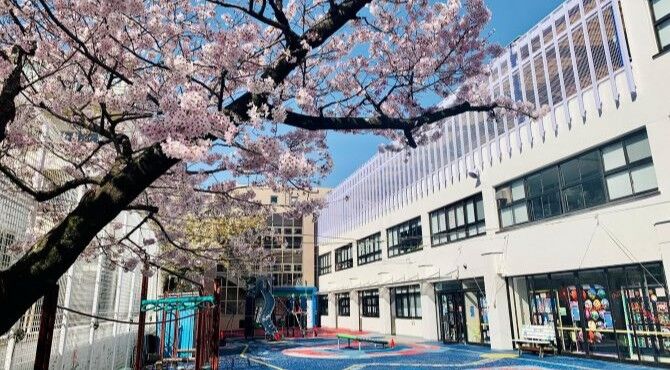
Visit St Michael's International School Directory Listing
The Power of Small: Why Scale Matters in Education
In conversations about education, bigger is often assumed to be better. Large schools promise extensive facilities, endless extracurricular choices, and economies of scale. Yet size can come at a cost: children who feel lost in the crowd, parents who struggle to be heard, and teachers who must balance relationships against administrative demands.There is another story to tell, one where smallness is not a limitation but a strength. Across the world, intentionally small schools are quietly demonstrating that when it comes to learning, relationships, and community, less can indeed be more. St. Michael’s International School in Kobe, Japan, is one such example. With around 145 pupils aged three to eleven, it has spent nearly 80 years proving that small schools have a unique and powerful role to play in education.A Place Where Every Child is Known
The greatest strength of a small school is its ability to know children as individuals. In larger institutions, even the most committed teachers can struggle to see beyond data points and test scores. At St. Michael’s, each child is known, not just academically, but personally. Teachers understand their interests, personalities, strengths, and challenges.This depth of knowledge creates security and confidence. Children thrive when they are not “one of many,” but recognised and valued in their own right. They are more willing to take risks in their learning, to ask questions, and to voice their opinions because they feel supported. In a small school, success is not measured only by grades, but also by growth in character, resilience, and creativity.Parents, too, feel this difference. Communication is direct, open, and personal. They are partners in their child’s journey, not bystanders navigating a bureaucratic system. For families relocating internationally, this sense of belonging is priceless.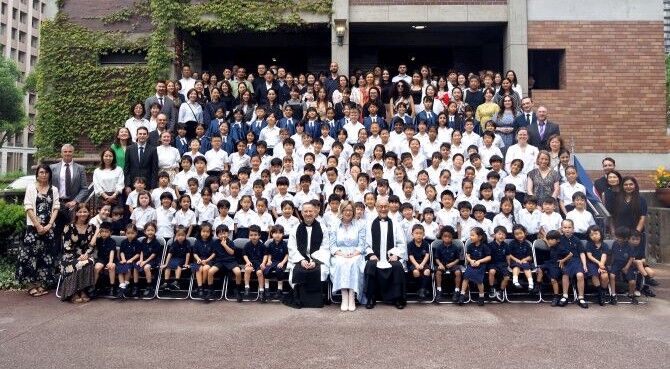
Academic Rigour Without Losing Heart
Critics sometimes assume that small schools cannot match the academic offerings of their larger counterparts. The reality is quite different. With a carefully designed curriculum and highly qualified teachers, small schools can deliver academic rigour while also attending to the whole child.At St. Michael’s, the National Curriculum for England provides structure and depth, while the International Primary Curriculum (IPC) adds inquiry, creativity, and global perspective. Children achieve strong results in literacy, numeracy, and science, but they also engage with thematic units that connect learning to real-world issues. A project on sustainability may involve scientific investigation, persuasive writing, artistic expression, and community action, an approach that reflects both academic excellence and holistic development.The advantage of being small is flexibility. Teachers can adapt lessons swiftly to meet individual needs, extend learning for those ready to be challenged, and provide targeted support when required. There is no danger of a child “falling through the cracks” because in a community this size, cracks simply don’t exist.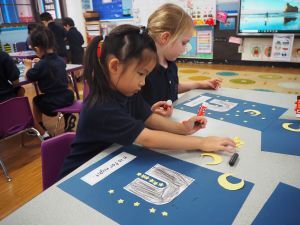
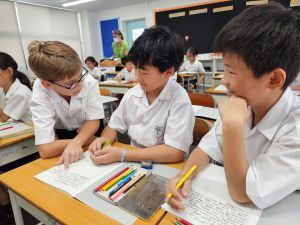
Values That Shape Character
In today’s education debates, character is once again recognised as essential. Employers and universities speak of resilience, empathy, and integrity with as much urgency as they do test scores. Small schools are uniquely positioned to cultivate these qualities, because values can be modelled, reinforced, and lived in every interaction.Respect, compassion, responsibility, tolerance, endeavour, honesty and integrity are central to daily life at St. Michael’s. These values are not confined to posters on walls; they are embedded in assemblies, morning discussions, and the rhythm of classroom routines. When a child helps a friend, persists through a difficult maths problem, or takes responsibility for a group project, they are living out the school’s ethos.In a community where everyone knows one another, accountability is natural. Children learn quickly that their actions matter, that compassion is noticed, and that responsibility is shared. The school becomes not just a place of instruction, but a training ground for citizenship.Personal Skills for a Complex World
Academic knowledge and values are essential, but education must also prepare children for a future that is unpredictable and fast-changing. This is where the intentional development of personal skills such as communication, collaboration, creativity, and critical thinking, becomes crucial.In small schools, these skills are not add-ons; they are the natural outcome of learning in close-knit groups. Communication is practised daily, whether presenting ideas to classmates or negotiating on the playground. Collaboration happens because children work across age groups and small teams, learning to value diverse perspectives. Creativity flourishes when teachers can take risks with curriculum design, tailoring activities to student interests. Critical thinking is encouraged in discussions that are not rushed by the need to move vast cohorts through identical lesson plans.By the time pupils leave St. Michael’s, they are not only academically prepared for secondary school, but confident in the skills that will sustain them for life.Community as Curriculum
Another power of small lies in community. Education does not happen in isolation; it is shaped by the relationships between school, families, and the wider world. In a school of 140, community is not a department, it is the culture.Events such as Good Neighbour Week, the annual Bazaar, St. Michael’s Day and Founders’ Day are more than celebrations. They are opportunities for children to apply values, practise leadership, and experience the joy of belonging. Parents volunteer, alumni return, and local partners engage, creating an ecosystem of learning that stretches beyond the classroom walls.In larger schools, community can sometimes feel like an optional extra, overshadowed by scale and complexity. In small schools, it becomes the very fabric of learning. Here, belonging is not an add-on but part of the curriculum itself. Children grow up knowing that they matter, that their contributions shape the whole, and that pride is found not only in individual success but in the shared achievements of their community.
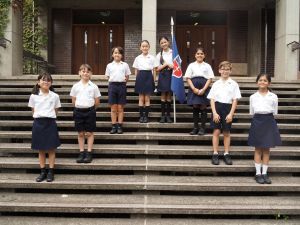
Balancing Tradition and Innovation
Small schools can also strike a balance between tradition and innovation. With almost 80 years of history, St. Michael’s has deep roots in Kobe. Its Anglican heritage, close ties with the local community, and reputation as one of Japan’s oldest international schools give it a distinctive identity.At the same time, the school is forward-looking. A one-to-one Chromebook policy ensures digital fluency. Wellbeing initiatives, including the recent appointment of a school counsellor, reflect contemporary priorities. Professional development days equip teachers with new strategies to create continuously challenging classrooms. Even as the school prepares to celebrate its 80th anniversary in 2026, it is also investing in the future through library renovation and expanded extracurricular opportunities.This balance demonstrates a truth often overlooked: small schools can be both rooted and agile. They can honour the past while responding quickly to new educational demands.Rethinking the Metrics of Success
Perhaps the most compelling argument for the power of small is that it challenges us to rethink what success looks like in education. If we measure only by exam results, university placements, or league tables, we risk missing the bigger picture: the growth of confident, compassionate, and capable young people.Small schools excel at this broader vision. They remind us that education is not about producing identical outputs but nurturing unique individuals. They show us that belonging, wellbeing, and values matter as much as knowledge. They prove that excellence and empathy can and must coexist.Conclusion: A Small School with a Big Heart
As international education continues to expand, the temptation will always be to grow bigger, to serve more, to build larger campuses. Yet in the quiet success of small schools lies a different lesson: scale is not the measure of greatness.St. Michael’s International School demonstrates this every day. Its 145 pupils are evidence that when children are known, values are lived, personal skills are nurtured, and community is strong, education becomes transformative.The power of small is not about size. It is about heart. And in education, that may be the most important measure of all.Visit St Michael's International School Directory Listing
©2026 Re:locate magazine, published by Profile Locations, Spray Hill, Hastings Road, Lamberhurst, Kent TN3 8JB. All rights reserved. This publication (or any part thereof) may not be reproduced in any form without the prior written permission of Profile Locations. Profile Locations accepts no liability for the accuracy of the contents or any opinions expressed herein.



























